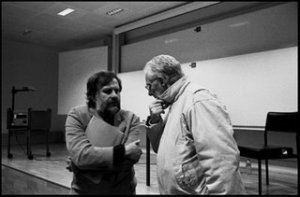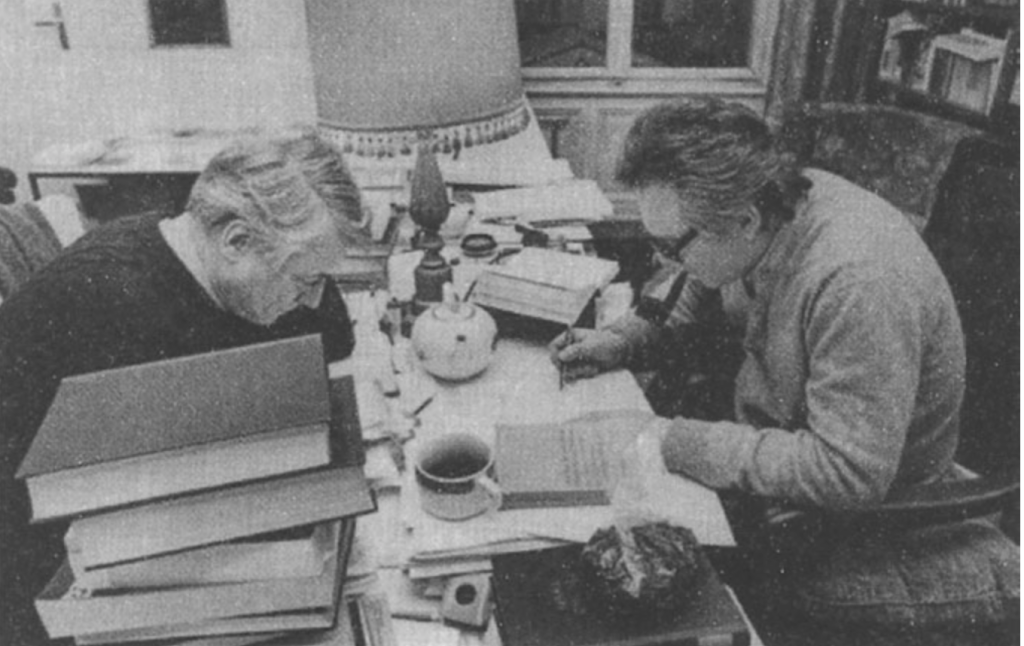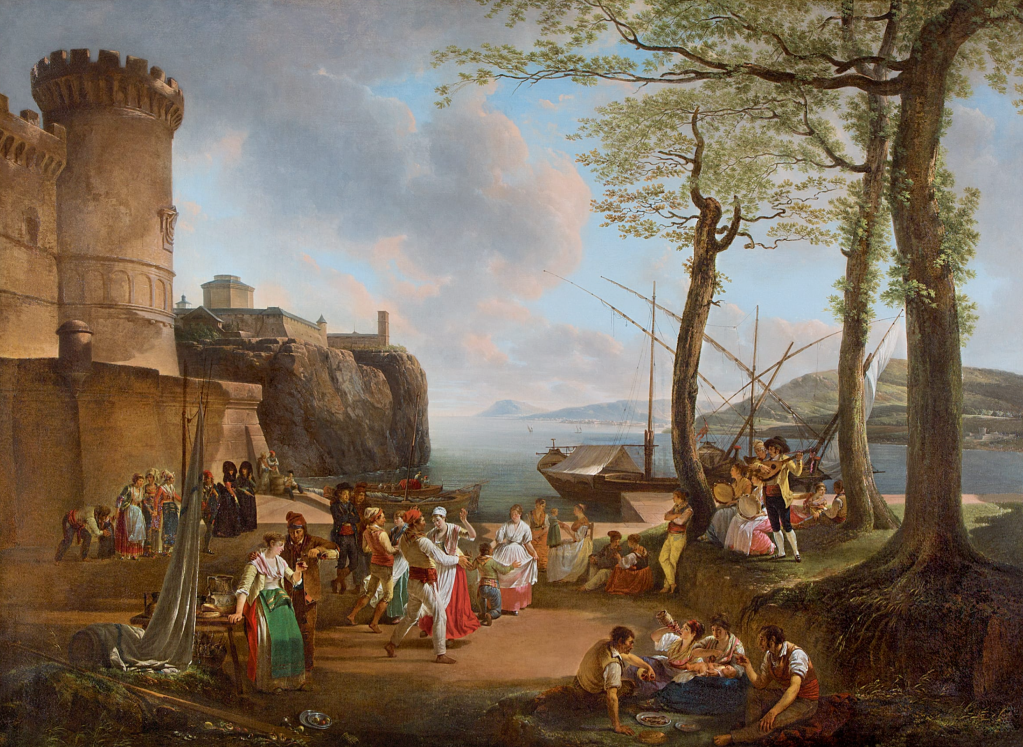One of the real benefits of an open access classroom at the European Graduate School is that all of the lectures are recorded and archived for online consumption. We do very little virtual work and have no virtual seminars, which I have personally participated in before via the Lutecium a non-school of Lacanian/Freudian Psychoanalysis and I did find it fruitful. In the late 1990’s MIT began to pioneer this approach to their lectures and courses, and more recently it was Stanford who really began to see the benefits of it. I attended the WISE conference on education in Doha, Qatar in 2008, and I was struck by so many professors of the humanities making the claim that their online seminars were just as effective in terms of the evaluations as were the in-person seminars.
But at the EGS, there is a difference from these other institutions. At EGS, we get to study with the seminal figures of philosophy and art who tend to be outside of the traditional institutions of academe. As you know, my interest in Žižek’s and Badiou’s philosophy is paramount to my interest in theory more generally. A lot has been written about the intersection of Žižek’s and Badiou’s politics, especially in terms of the act vs. the event. In Žižek’s seminar this year, he was kind enough to give those of us that really wanted it, the floor to ask him our questions.
My questions for Žižek are still relevant for me, and I think that in some ways, we will have to wait for Badiou’s new book, The Immanence of Truth to really address many of the questions that I have raised. Below I have included my specific questions, and you can follow along with them in the video (also embedded below) starting at 37:45 in. The first part includes a wonderful set of questions on the ontology of the One, multiplicity, and the debate between the Slovene School of Lacanians (Žižek, Zupančič, and Dolar) by my friend Bree. In a separate post I will share my questions for Badiou and his responses.
1. THE ACT vs. THE EVENT:
The act for Lacan is that which does not remain authorized by any big Other, but only by itself, and thus it avoids self-instrumentalization (Žižek 2000: 351). In your development of the act, the subject undergoes an Hegelian night of the world that enables, through negation, a freeing of the subject to create a new libidinal set of coordinates. For you, the act is located in the Lacanian imaginary. For example, let’s pretend that a political system is in a crisis. In a pre-evental way, the system fails; this becomes the truth of the system, the symptomal point.
Contrary to this position, the event in Badiou, vis a vis the truth-evental subject on the other hand, is beyond politics, it is “archiopolitical” in the sense that it seeks to revolutionize humanity itself – similar to Nietzsche’s splitting of history in two.
Is not then Badiou’s idea of the truth-evental subject the same as Deleuze’s non-human philosophy, designed to bring the overman above self reflection?
Furthermore, is then the truth-evental subject, in not being brought into a new world without the death drive, no longer in need of psychoanalysis for Badiou?
2. ON MASTER SIGNIFIER AND REVOLUTION:
In Less Than Nothing, you argue vehemently against Miller’s “ironist” approach to the relation of the Lacanain gap that is constitutive of the political as such. You suggest that Communism is that system which will allow for the enjoyment of sympthomes to flourish? For idiosyncrasies to flourish, we need Communism. So then Communism is the only system that we can have for individuals to enjoy their symphtomes?
But can your subject of the act be included into Badiou’s Truth-evental subject? As we know, there are four affects that signal a human being’s entry into an event: terror, justice, anxiety and courage. These are meant to be categories of subject-effects, as well as processes. They are not tied to generic truth procedures, but are generated around any event-generated truth.
How precisely does psychoanalysis fit into the affects related for the evental subject? Badiou limits the evental subject to four affects corresponding to the truth-event subject: happiness (love) enthusiasm (politics) joy (science) pleasure (art).
For the evental subject, the affects function like feedback loops drawing the subject more into each truth procedure, associated with event fidelity create and reinforce aspects of heroism.
The death drive is relegated to the human animal, but is the truth-evental subject somehow outside of death drive? Or does this go too far?
Might the difference here be between the precise positioning of the master signifier for you vs. Badiou?
What is this difference between the role of the master signifier in suturing a new political order?
My final question on emancipatory political engagement is not answered by Žižek, but here it is nonetheless. He does go over much of this in his lecture regardless.
3. EMANCIPATORY POLITICAL ENGAGEMENT
On the question of interpassivity and political engagement: Lacan famously said in Television that, when it comes to changing capitalism: “I only remark that I cannot seriously do it, because in denouncing it I reinforce it, I normalize it, that is, I perfect it” (255).
The problem, it seems to me, is that of differentiating between interpassive acts against the big Other and authentic acts becomes difficult to differentiate specifically in today’s political climate in the west, what Badiou calls an “atonal world devoid of passages”. In today’s political space, how might pre-evental human beings still caught within the relational matrices of the state be brave enough to wager investing their faith in an incredibly uncertain prospect for potential change that has yet to actually transpire.
Against the Foucaldian – Agambenian notion of resisting the dispotif, you argue that we must promote modalities for thinking and acting that present ruptures to the dispotifs and not merely resistances (994).
You have also claimed that, “One cannot ever be sure in advance of what appears (within the register and the space of visibility of the ruling ideology) as a “minor” measure will not set in motion a process that will lead to the radical (evental) transformation of the whole field” (Žižek, Badiou: Notes on an ongoing project, Pg. 5).
So the political suspension of the ethical seems to imply that all acts are gambles that is supported on the fact that big Other is weak.
But as we know For Badiou, forcing must happen after the event, for them to truly emerge, they must emerge mysteriously. “The future anterior is the real political time” (58) as Badiou points out in his discussion of ethics at the end of Logics of Worlds:
“What corrupts a subject is the process of treating as a possible consequence of an event what is in fact is not a consequence. In brief, it’s a matter of logical arrogance. For there’s no reason why the intensity of existence should be identical to the totality of the world” (350).
So how might we resolve this lack of clarity for action and avoid what Badiou refers to as the risk of emancipatory acts, which are merely nihilistic strikes at an imaginary opponent?




Leave a comment